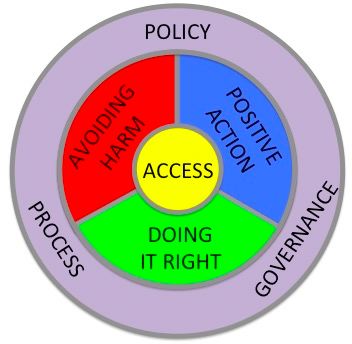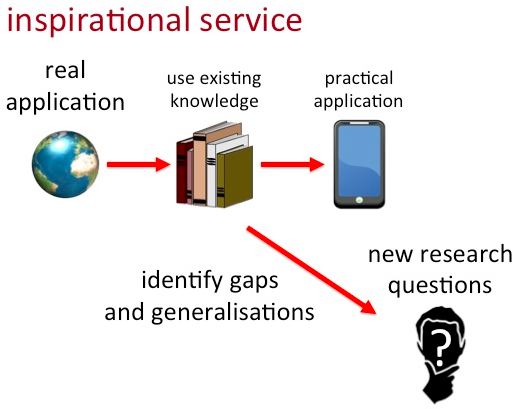There can be deep conflicts between the desire to do research that is meaningful and contributes to social justice and the metrics and criteria used to judge an academic career. How can we do research that is good and get through annual appraisal! As a successful academic I have been able to partially ignore these career drivers, and I am fortunate in that my current role as Director of the Computational Foundry is explicitly about encouraging fundamental research that makes a difference in the world. Not everyone is so fortunate.
In this talk I outlined ways in which the twin goals of useful application and deep research can be both be met.
Translational research has become a key phrase in UK research council aspirations. Typically this is taken to mean a process that start with some existing theoretical research and then seeks ways in which it can be applied in practice. Sometimes this can lead to really innovative new applications, but more commonly it is a sort of application washing, simply a veneer of utility. Alternatively, applied research may start with a real need, find knowledge in the scientific literature that creates a solution – this satisfies a real need, but may simply be service by the academic, not feeding back into research. However, there is a third way, inspirational research that starts off with a real need, just like standard applied research, but using the process of dealing with the problem as an opportunity to identify gaps and new challenges. It creates an immediate solution using existing knowledge, but in so doing opens up the opportunity for future fundamental research.
Keywords: social justice, applied research, academic career
|

